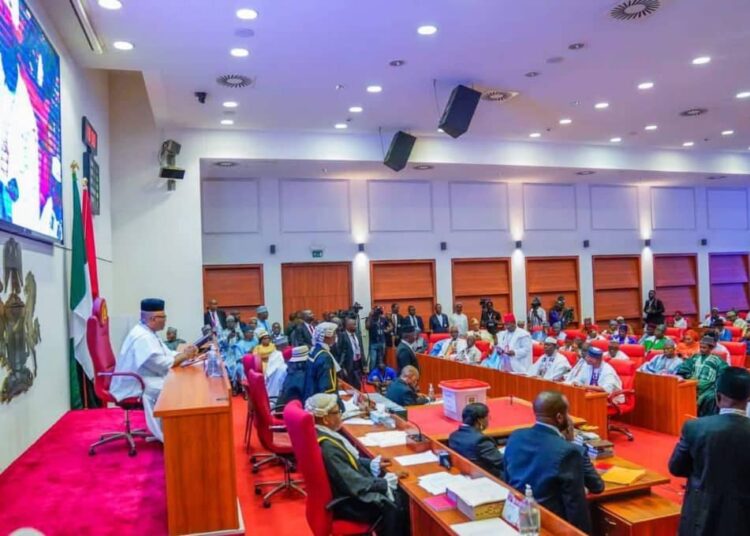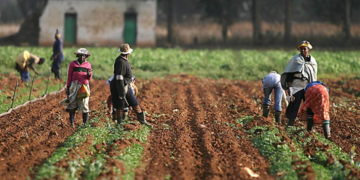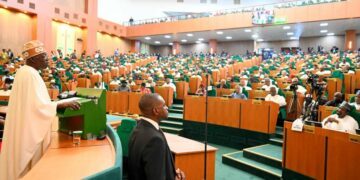The Senate was engulfed in fierce discord when several northern Senators opposed allowing the Federal Inland Revenue Service (FIRS) Chairman, Zaccheus Adedeji, and his team entry into the Chamber for a briefing on the four proposed tax reform bills.
The session, presided over by Deputy Senate President Jibrin Barau, became contentious as the tax reform bills were introduced for discussion despite needing to be included in the day’s agenda.
The commotion began when Senate Leader Opeyemi Bamidele invoked Order 12(1) to suspend Senate rules, permitting the FIRS Chairman and tax experts to present clarifications on the bills. Bamidele’s motion received backing from Barau, who allowed the guests to enter the Chamber.
However, former Deputy Senate Leader Abdul Ningi quickly objected, referencing Senate Standing Orders restricting non-senators’ access during sessions. Barau dismissed Ningi’s concerns, asserting that the experts were invited for a crucial national discussion.
Dissatisfied with this ruling, Ndume, a former Senate Majority Leader, vocally opposed the move, arguing it was improper to host outsiders in the Chamber without prior notice in the Order Paper. This sparked a heated exchange between Ndume and Barau, with Ndume’s frustration escalating the atmosphere into chaos.
The Senate’s proceedings were effectively halted as Ndume reacted sharply to Barau’s remarks that the session was focused on facts, not rhetoric. Ndume took issue with Barau’s choice of words, prompting him to raise another point of order in protest.
Barau maintained that the term was used broadly and not directed at Ndume specifically. In response, Ndume insisted on adhering to proper procedures, emphasising that any discussion involving the tax reform bills should be formally included in the Order Paper.
“This is a critical issue,” Ndume stated. “We must not disregard our established protocols. If we’re discussing this today, it must be reflected in a supplementary Order Paper. We owe it to our constituents to handle this transparently.”
Despite Ndume’s efforts to rally support among his fellow northern Senators for a walk-out, he found no allies. Ultimately, he returned to his seat and reluctantly listened to the briefing from the presidential team.
Notably, Ndume had previously voiced opposition to the tax reform bills when they were submitted to the National Assembly by President Bola Tinubu. Central to the controversy is the proposed alteration of the Value Added Tax (VAT) sharing formula within the Nigeria Tax Administration Bill, which seeks to reduce the federal government’s share from 15% to 10% and change how VAT is allocated among states based on company headquarters rather than consumption location.
The bill stipulates that the distribution of VAT revenue would be allocated as follows: 10% to the Federal Government, 55% to State Governments and the Federal Capital Territory, and 35% to Local Governments, with a portion based on derivation principles.
Additionally, a contentious proposal is to gradually increase the VAT rate from 7.5% to 10% in 2025, then to 12.5% from 2026 to 2029, ultimately reaching 15% by 2030, aligning with VAT rates in other African nations.




